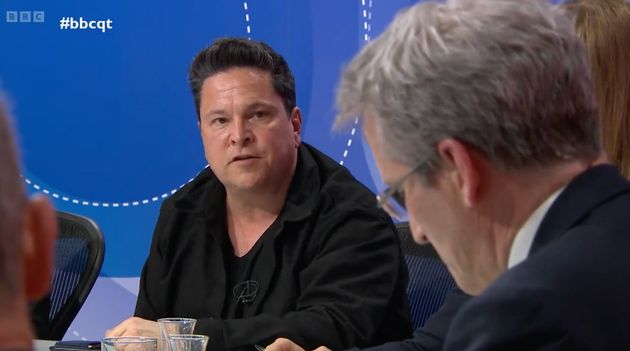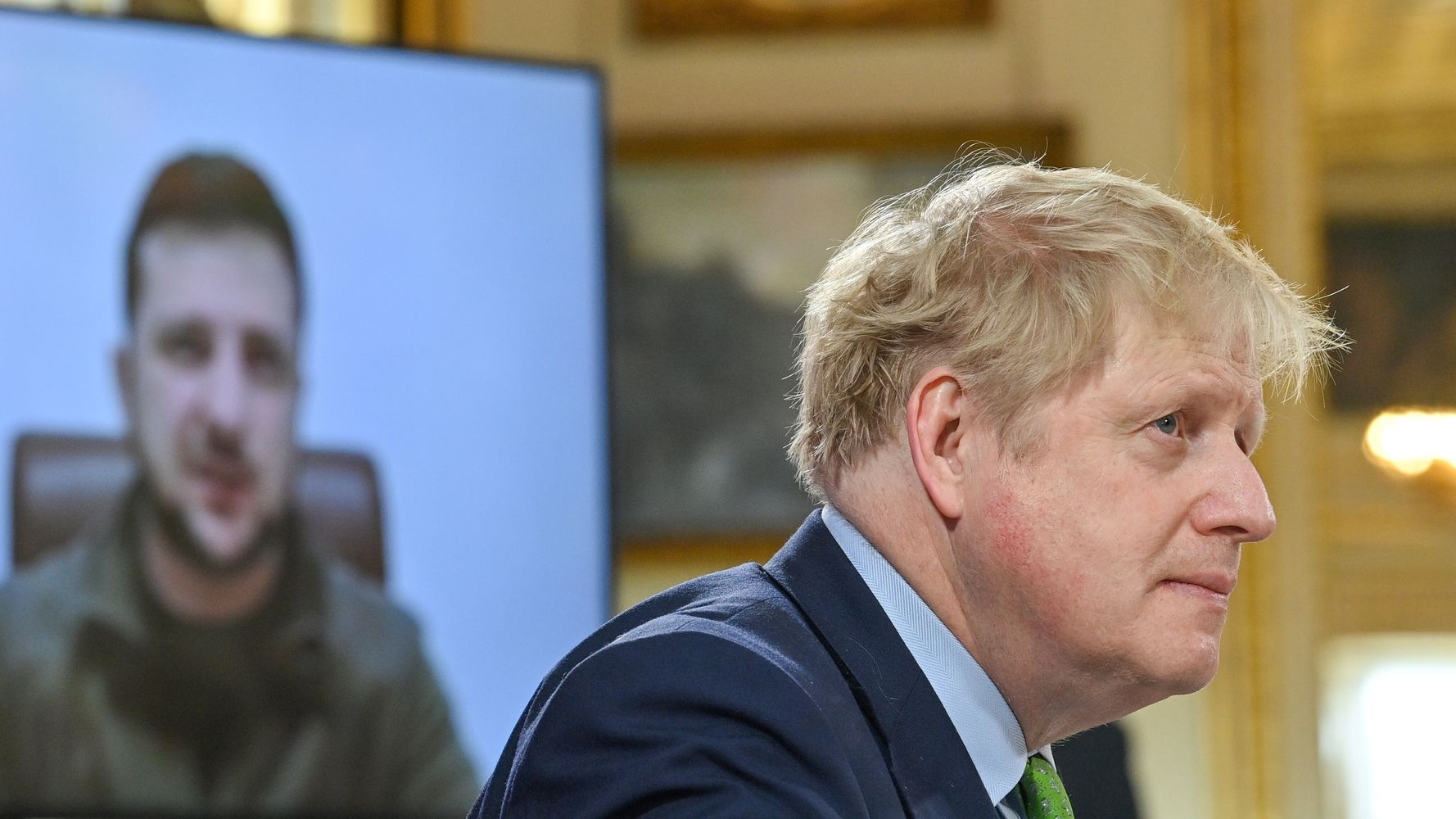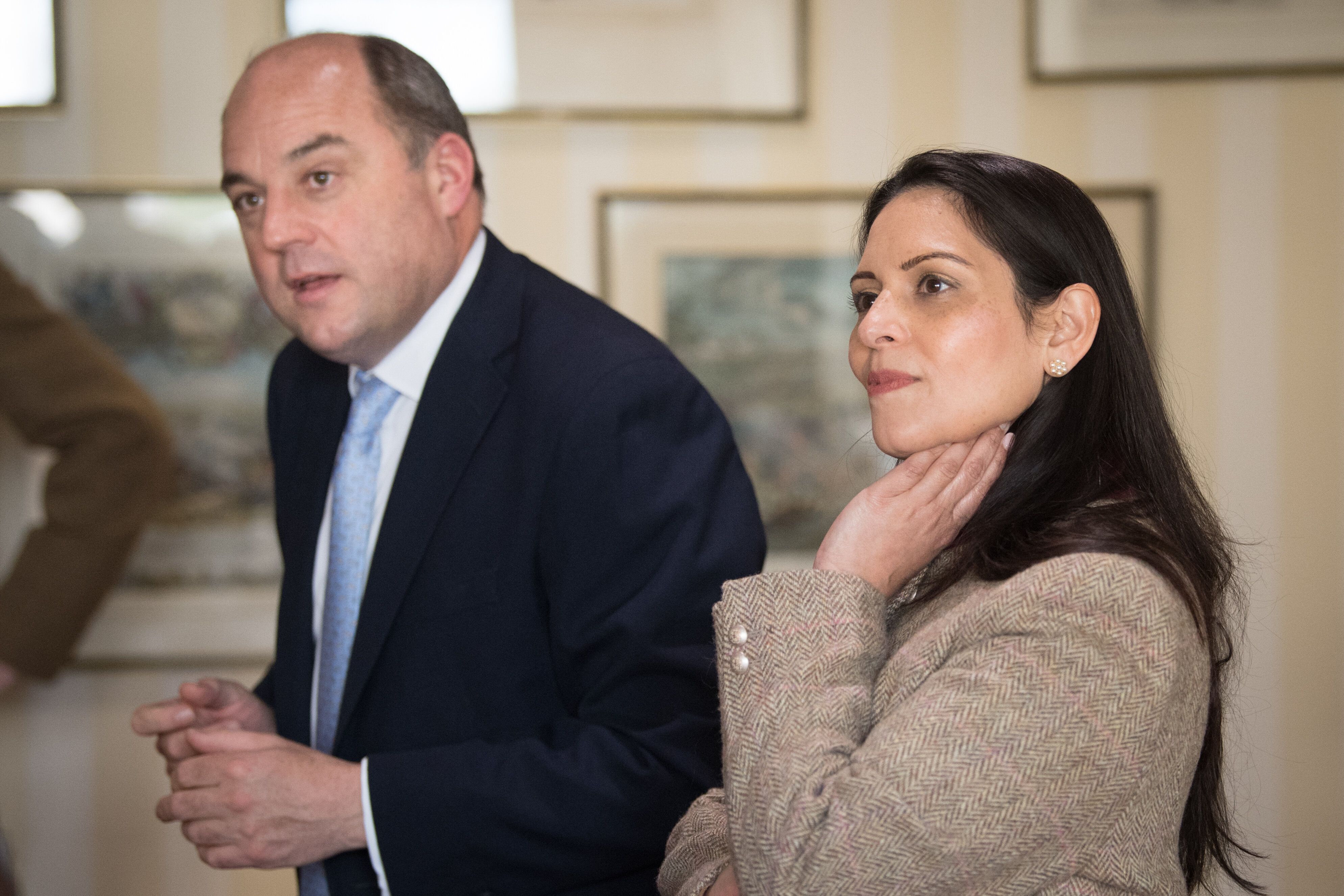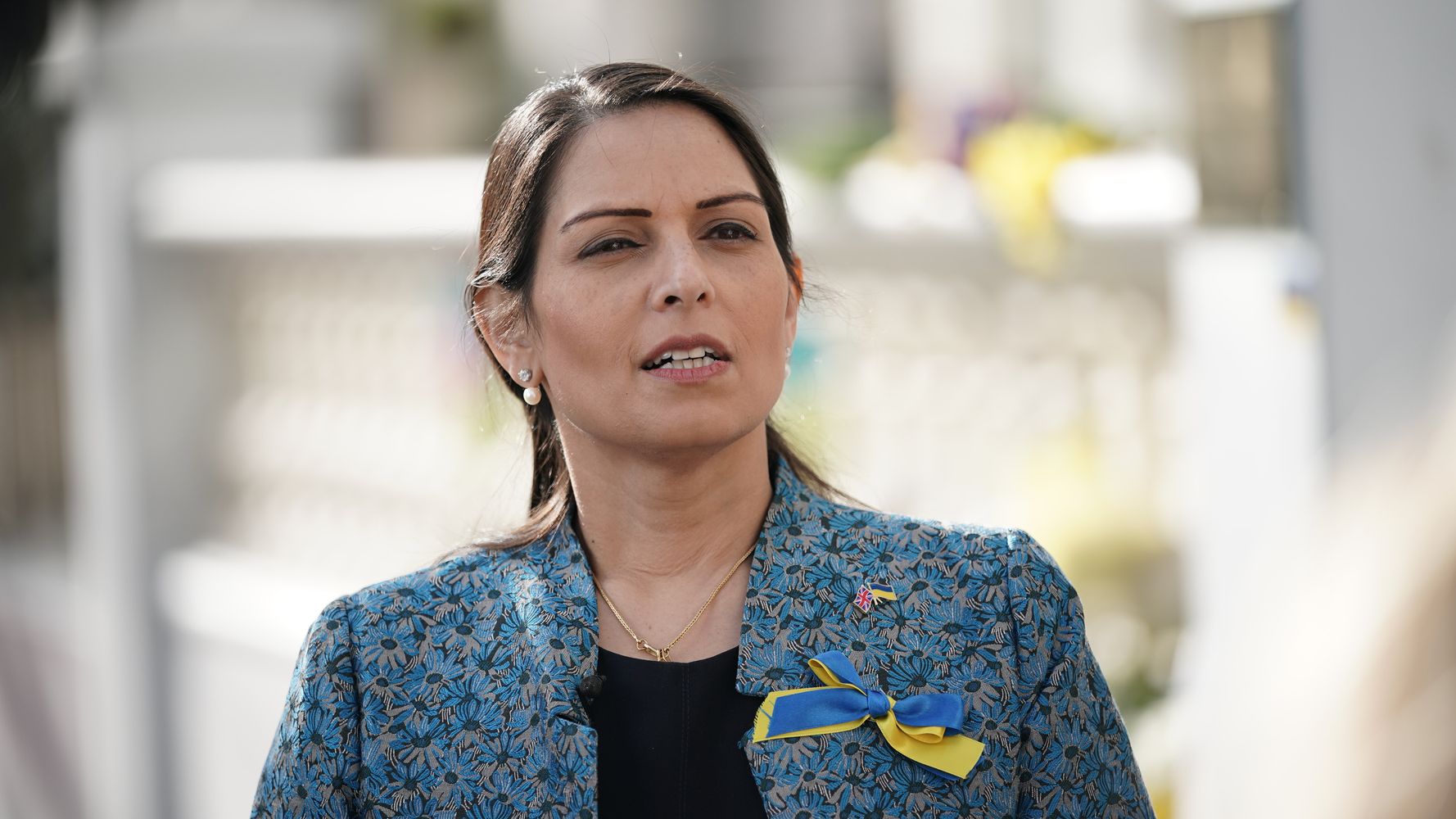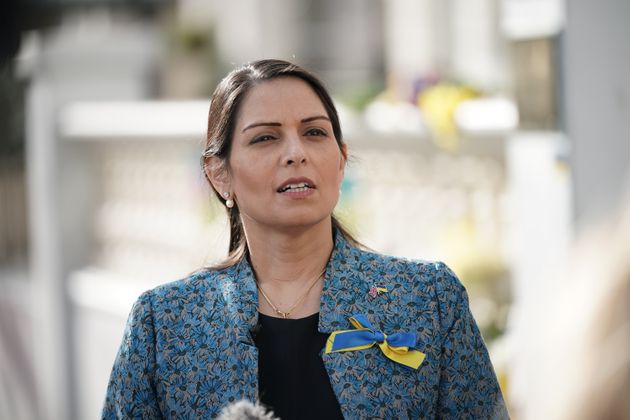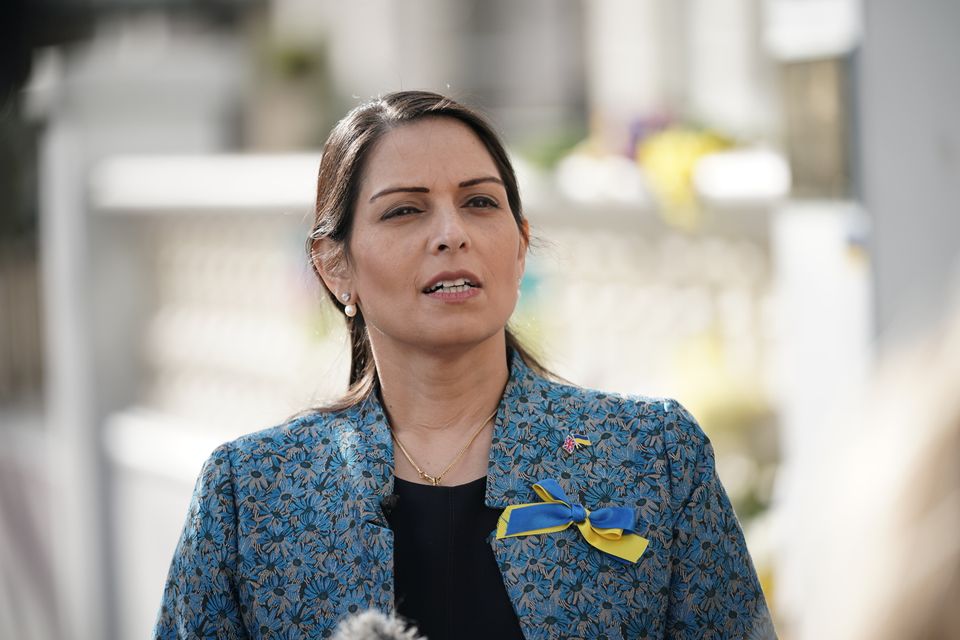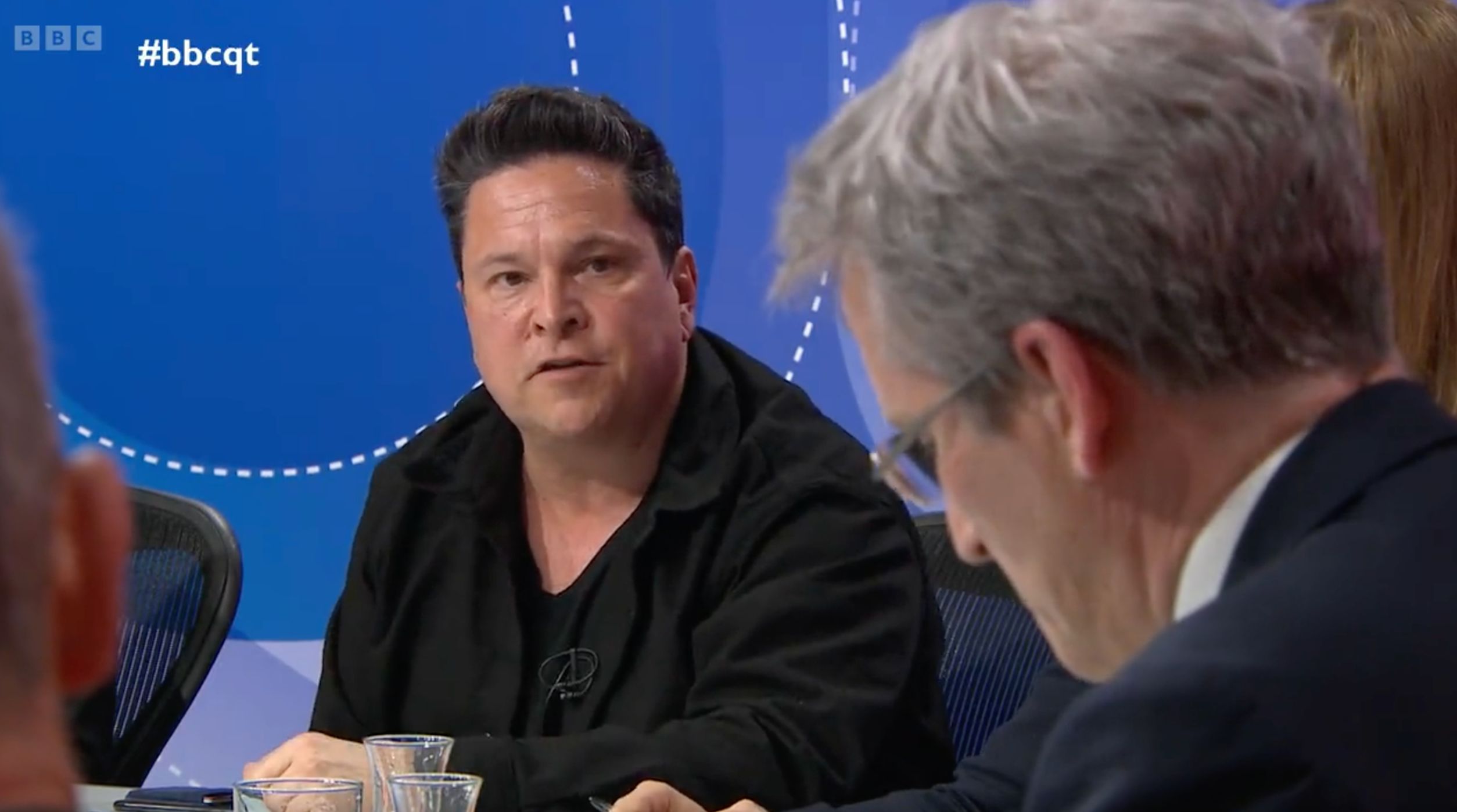
Comedian Dom Joly has condemned the government’s “disgusting” treatment of Ukrainian refugees as he blasted the visa requirement and ministers’ fears of letting in spies.
Speaking on BBC’s Question Time, the Save the Children ambassador also criticised Conservative policies that tried to deter the “wrong sort of refugee”.
Advertisement
Joly took issue with the bureaucracy around the Homes for Ukraine scheme, with the government yet to say how many visas have been issued via the programme.
He also spoke out against ministers warning that women fleeing Ukraine could be Russian spies coming to Britain to launch Salisbury-style attacks.
Advertisement
Joly said: “Firstly, this government seems to … well, its supporters mainly, seem to have an anti-refugee, anti-immigrant feeling and so I think they feed off that, they feel that is the way to go.
“And certainly they have been incredibly confused by the fact that people seem to be incredibly sympathetic towards Ukrainian refugees and I cannot, for the life of me, see what the difference is between Ukrainian refugees and Syrians and Afghans. Well, actually, I can and I think that is one of the reasons, for instance, that there were no visa offices set up at Calais, because they did not want the wrong sort of refugee or immigrant turning up.”
Advertisement
He said the apparent sluggishness in issuing visas via the Homes for Ukraine scheme spoke to the “ludicrous amount of complications”.
“Why are we the only country asking people to have visas?,” he said, referring to the European Union, by contrast, granting temporary residency to Ukrainians fleeing the invasion and giving them access to employment, social welfare and housing for up to three years.
“There was this ridiculous excuse that somehow some of these people might be spies or they might be secret agents coming to do that. Well, that does not seem to affect any other country, so why are we so special?”
He finished: “I think it is disgusting the way we treat it, I really do.”
Advertisement
Almost a week after its launch, the government has not confirmed how many Homes for Ukraine applications have been successful. On Question Time, government minister Damian Hinds said a report detailing the figures has yet to be published, but “thousands” of Ukrainians with family links have been given visas.
He said: “Everybody recognises that there is the most enormous humanitarian emergency going on. We are a warm-hearted, kind-hearted nation, and we must do not only our share, but we want to do more than our share.”

